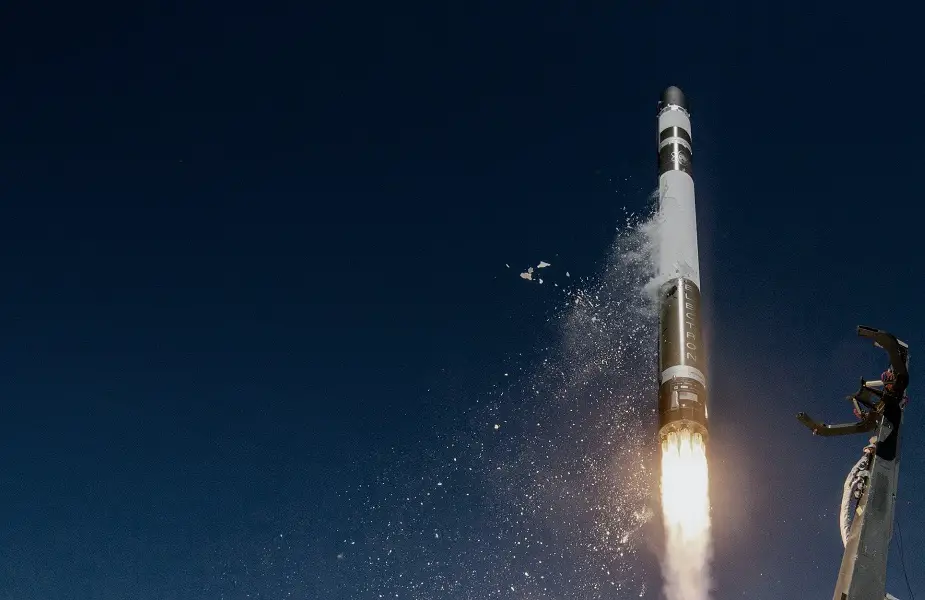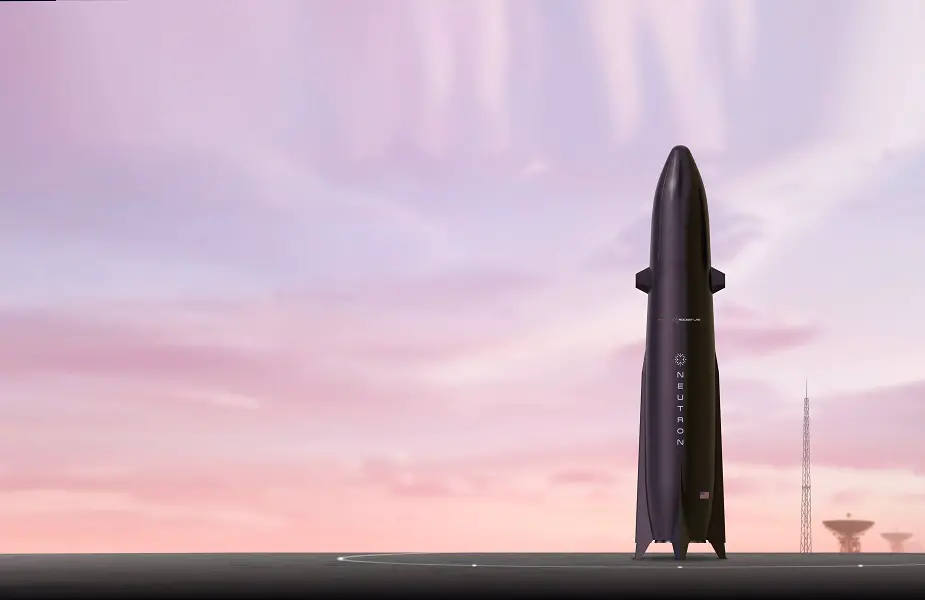Breaking news
Rocket Lab signs agreement with USTRANSCOM to explore using Neutron and Electron rockets to deliver cargo around the world.
Rocket Lab USA, Inc., a global leader in launch services and space systems, announced that it has signed a Cooperative Research and Development Agreement (CRADA) with the United States Transportation Command (USTRANSCOM) to explore the possibility of using the Company’s Neutron and Electron launch vehicles to transport cargo around the world. The agreement will also see Rocket Lab explore using Photon spacecraft to establish on-orbit cargo depots and deliver re-entry capability.
Follow Air Recognition on Google News at this link
 Electron rocket (Picture source: Rocket Lab)
Electron rocket (Picture source: Rocket Lab)
The CRADA enables the collaborative investigation between USTRANSCOM and Rocket Lab to explore Neutron, Electron and Photon capabilities, informing the Rocket Cargo program led by the Air Force Research Laboratory (AFRL) and the U.S. Space Force. Rocket Cargo is one of the Air Force’s Vanguard programs designed to advance emerging systems and concepts through prototyping and experimentation to deliver remarkable new capabilities. The program seeks to explore the viability of space launch to deliver improvements in delivery cost and speed compared to existing air cargo operations.
“Point-to-point space transportation offers a new ability to move equipment quickly around the world in hours, enabling a faster response to global emergencies and natural disasters,” says Rocket Lab founder and CEO, Peter Beck. “Electron is already a proven and reliable launch vehicle and we’ve demonstrated its adaptability with programs like reusability and our recent CAPSTONE mission to the Moon for NASA, so we’re no stranger to exploring expanded use cases for Electron. Neutron builds on Electron’s capability with a much larger payload capacity, and it’s designed for frequent reflight, making it a perfect fit to enable fast deployment of vital resources while eliminating the en-route stops and air refueling required by air cargo solutions. Topping it off with Photon cargo depots on orbit provides a well-rounded approach to the future of rapid global deployment. We’re excited to be collaborating with USTRANSCOM on this forward-thinking, innovative research program that could ultimately shift the way the Department of Defense considers logistics response options.”
“Rocket Lab USA will help the Federal government understand commercial rocket capabilities for future logistics missions,” added Mr. Jamie Malak, the CRADA’s government project lead at AFRL. “USTRANSCOM and its global Combatant Command customers have been constrained to logistics at the speed of conventional aircraft—or often far less—for their entire history. Now we can look to transport critical military cargo an order of magnitude faster than ever before. We will explore how to integrate rocket cargo systems in Defense logistics processes and how to make space transportation a reliable and practical option for operations of the future.”
About USTRANSCOM:
USTRANSCOM oversees global military logistics operations and uses CRADAs to evaluate commercial technologies for possible fielding. The agreements team industry, academia, and their specific technologies with DOD future thinkers to anticipate uses, feasibility, value, and costs.
About Neutron:
Neutron is Rocket Lab’s medium-lift, reusable launch vehicle in development. Designed to deliver reliable and cost-effective launch for payloads to low Earth orbit and beyond. With a large seven-meter fairing and a payload lift capacity of 13 tonnes in a downrange landing configuration, Neutron is ideal for both constellation deployment and large single spacecraft missions. Development and manufacturing of the Neutron rocket is based at Rocket Lab’s Production Complex in Wallops, Virginia within the Mid-Atlantic Regional Spaceport. Neutron’s first launch pad will also be located at the spaceport near the Company’s existing pad for the Electron rocket.
 Neutron rocket (Picture source: Rocket Lab)
Neutron rocket (Picture source: Rocket Lab)
About Electron:
Electron is Rocket Lab’s small launch vehicle, capable of launching payloads of up to 320kg / 705 lbs to low Earth orbit and interplanetary destinations. Since the first Electron lift-off in 2017, Rocket Lab has launched 29 Electron missions deploying 149 spacecraft to orbit for civil, defense, intelligence and commercial customers. Rocket Lab operates three launch pads for Electron. The first two are located at Launch Complex 1 in New Zealand, the world’s first private orbital launch site. A third Electron launch pad is located at the Mid-Atlantic Regional Spaceport in Virginia.
About Photon:
Photon is Rocket Lab’s in-house designed and built small spacecraft. Photon is based on the heritage Electron launch vehicle Kick Stage, leveraging numerous components that have significant flight heritage, including the Curie engine, an in-house designed and developed in-space propulsion system. A highly configurable platform, Photon Configurable can be adapted for a range missions in LEO, MEO, GEO, and beyond, including lunar and planetary. A lunar-capable version of Photon was used by Rocket Lab to successfully complete the CAPSTONE Moon mission for NASA in 2022, sending a CubeSat to a ballistic lunar transfer in the first mission of the Artemis program.


























